You may have heard once or twice that salt can be used to make ice last longer or to make it freeze colder, but is this actually true?
When you’re using a cooler as your primary fridge, like I did when I lived in my van, keeping ice for longer was a big priority. If I could use salt to do that then they would be a great tip. But does it work? Does salt make ice last longer?
No, salt does not make ice longer. Salt causes ice to melt at a lower temperature than 0ºC (32ºF) this is why it’s used to melt ice on roads. However, as salt melts and dissolves ice it will lower the overall temperature making it colder.
While salt will make ice melt faster, this lowering in temperature that happens can actually be used to keep some ice longer and to keep your cooler cold for longer.
Why Does Salt Make Ice Melt Faster?
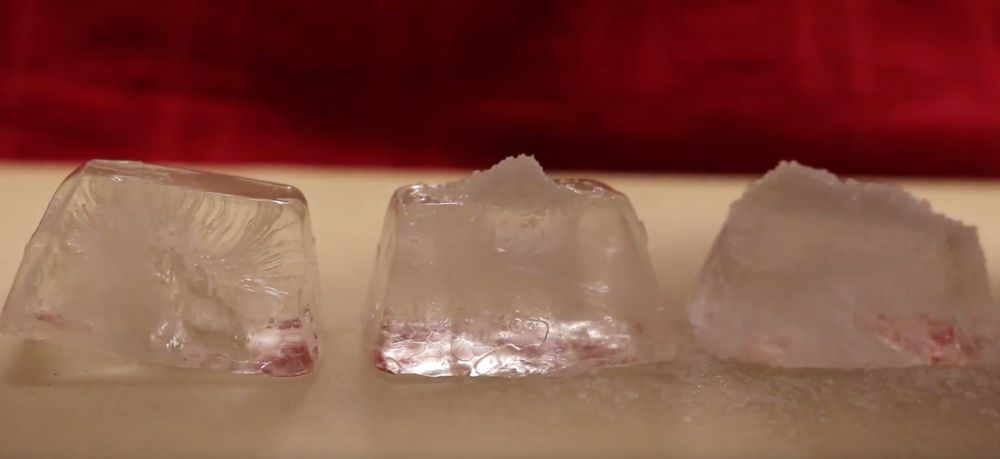
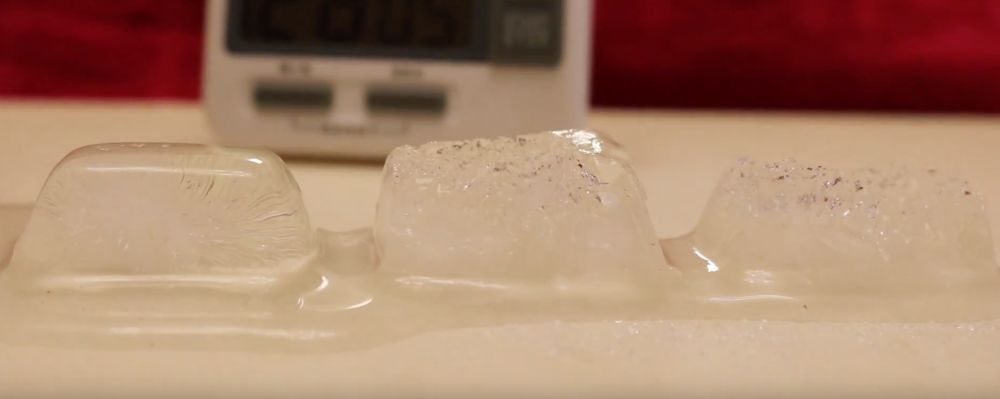
By adding salt to ice you are changing the chemical composition of the water. This composition changes some of the properties of the water.
Salt water has a lower melting point than regular water. It will usually melt around -2 to -6ºC (28-20ºF).
Household freezers are usually kept at around -18ºC (0ºF) so your ice likely starts at this temperature.
Over time it begins to warm up. When the ice warms up above 0ºC (32ºF) it starts to melt and turn into water.
However, when salt is added to your ice it will melt earlier because it’s melting temperature is lower. This means salt ice won’t stay frozen as long as regular water ice.
How Can You Make Ice Last Longer Using Salt
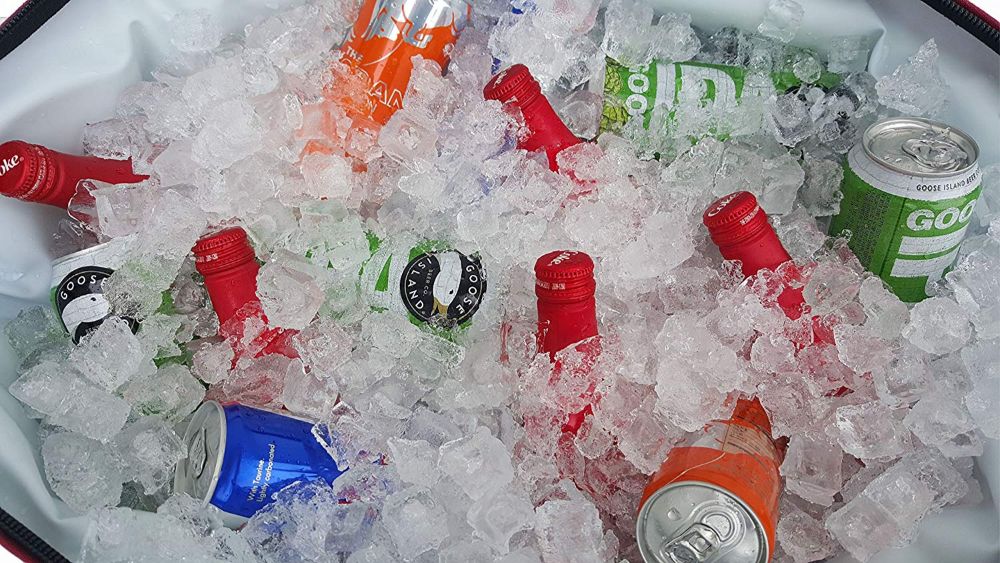
One of the interesting things that happens when you add salt to your ice is the temperature of that ice will get cold.
As salt dissolves in water that chemical reaction requires energy in the form of heat and so it’ll draw that heat from the surrounding ice making it colder.
Also the process of ice melting and turning into water also uses heat to happen and thus pull that heat from the surrounding ice making it colder.
So adding salt to ice might make some of the ice melt faster, but it’ll lower the temperature of your cooler overall which can help to keep ice longer.
Ideally you want to isolate your salt water ice from your regular ice so they don’t mix and melt everything.
The easiest way to do this is using an ice pack.
These sometimes use salt and sometimes use other chemicals that create a lower melting point so they will melt before the rest of the ice in your cool, drawing heat from the ice in the process and making it last longer.
You can make your ice versions of this ice packs by dissolving salt in warm water and filling up water bottles with the salt water. Otherwise you can check out some of the cooler packs below:
1. Engel Cooler Pak
Engel Cooler Pak 20’s are designed to melt at 20ºF (-6.6ºC) and so they will melt long before regular ice does.
These have been shown to be one of the best performing ice packs on the market and seem to work better than the more expensive Yeti Ice.
There are also Engel 32’s which are different to the Engel 20’s as the 32’s are designed to melt at the same temperature as regular water.
The 32’s are just like self contained ice packs. They are great to use multiple times and refreeze but they won’t work as well to keep your regular ice longer.
These are decently priced and aren’t too expensive. Would be a great addition to have to a larger cooler or could be used by themselves in smaller coolers to keep things cold for days.
See the latest price of Engel Cooler Paks at Amazon
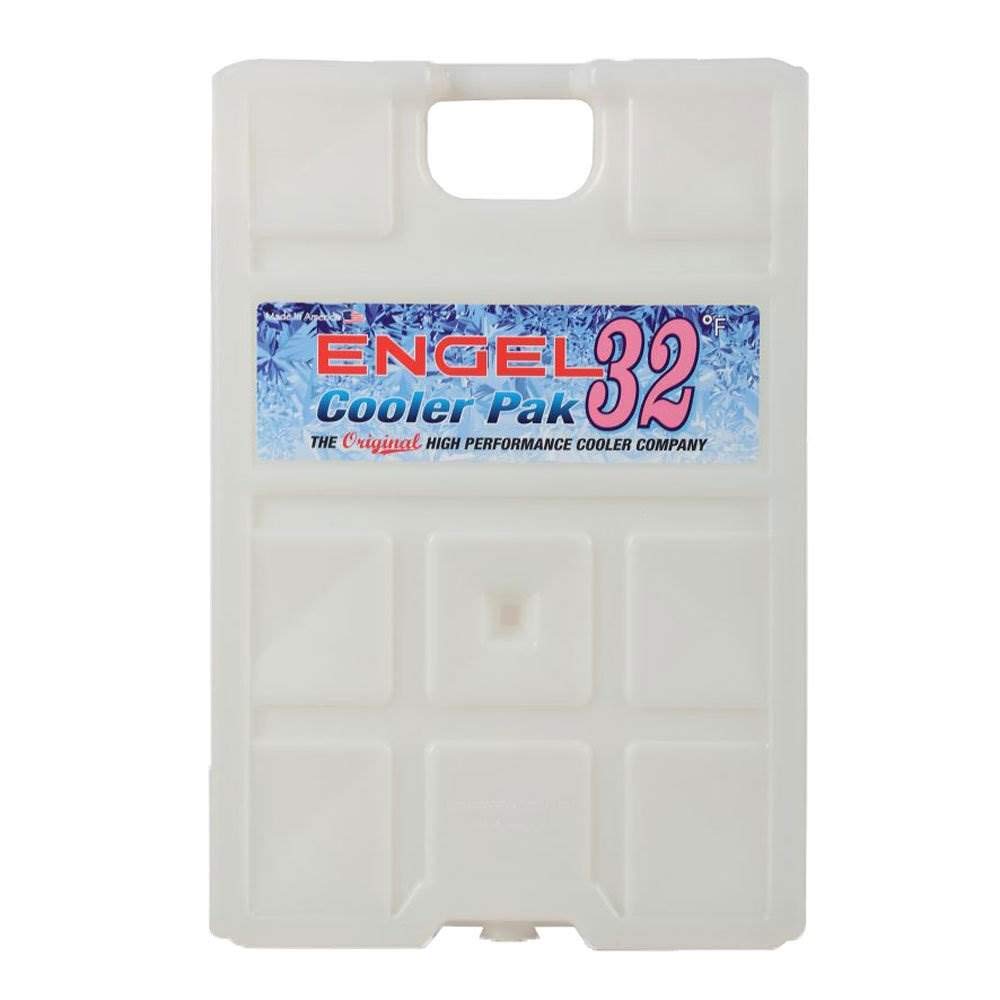
2. Cooler Shock Hard Packs
Cooler Shock hard packs are one of the most loved ice packs on the market, with the reviews being insanely positive.
Honestly, I’ve never heard people talk so passionately about ice packs it’s ridiculous.
They are pretty cheap to buy and they are made from durable HDPE which is impact resistant and BPA free.
They are made thin and wide so they freeze fast and so they can cool large quantities of food or drinks.
See the latest price of Cooler Shock Ice Packs at Amazon
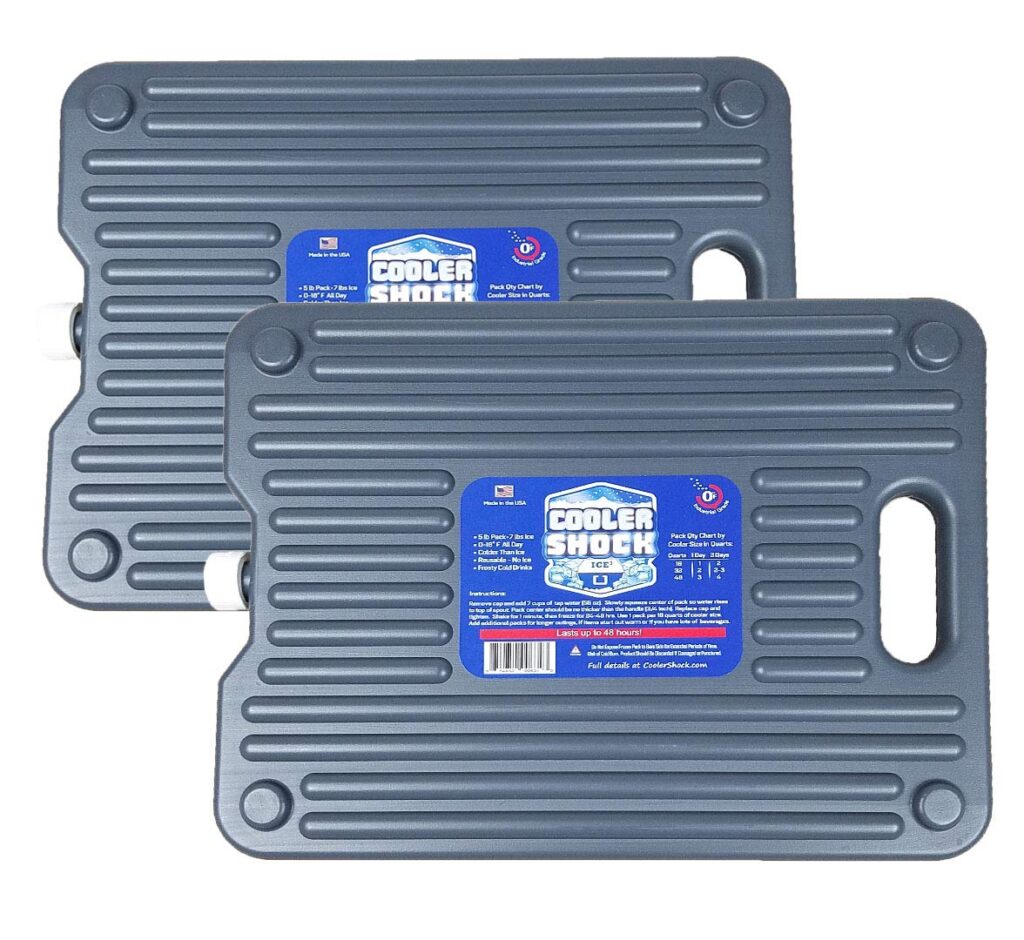
3. Yeti Ice
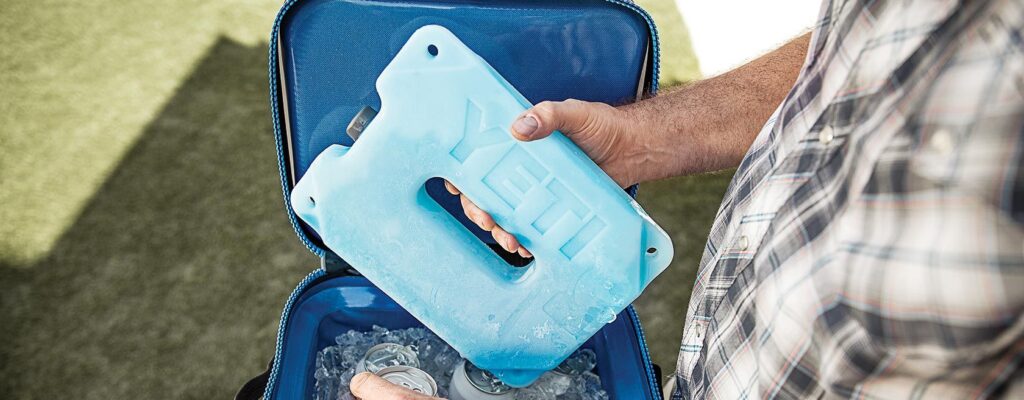
Yeti Ice are super durable and well designed ice bricks that are sized to fit perfectly into a lot of different Yeti products.
They are made from thick plastic that is impact resistant so they can be thrown around without issue and they will last you years.
By themselves (without regular ice) they do a decent job but they don’t seem to perform as well as just frozen water bottles. But when combined with regular ice they help the ice stay frozen for longer.
They come with a 5 year warranty and while they aren’t the cheapest ice brick on the market they do have the Yeti branding which some people absolutely love.
They look great, work well and last ages. If budget isn’t an issue for you then grab these.
See the latest price of Yeti Ice Bricks at Yeti.com(or compared to price of Yeti ice Bricks at Amazon)
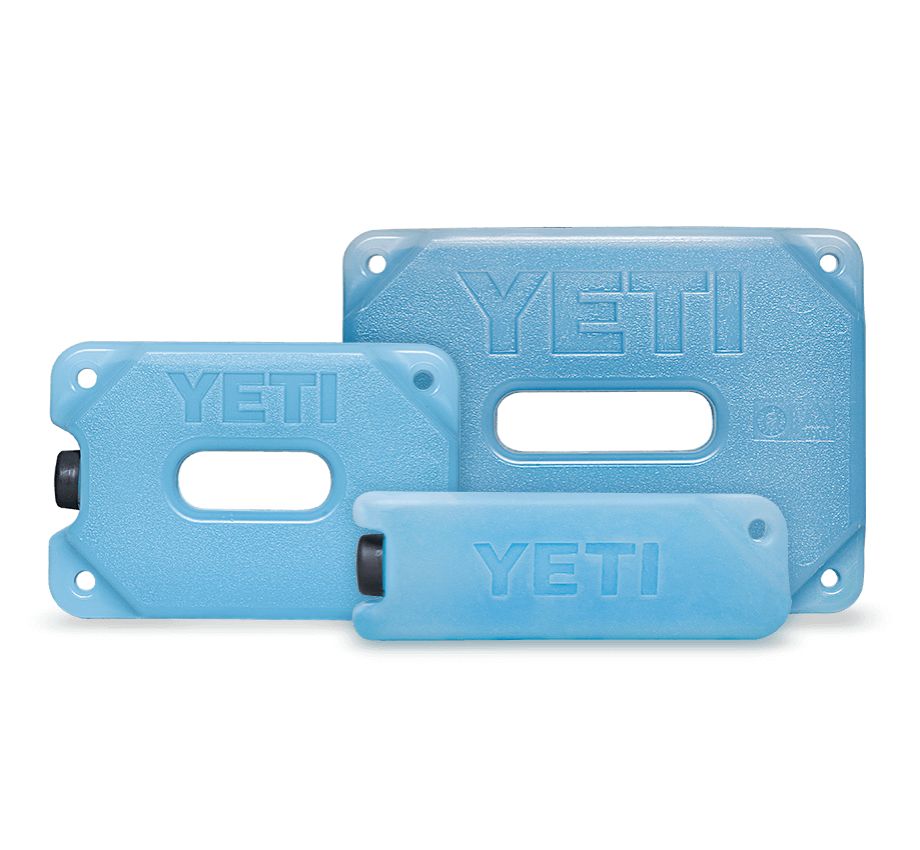
Does Salt Water Ice Last Longer Than Regular Ice?
While adding salt to ice causes it to melt faster what about pre-freezing salt water. Does pre-frozen salt water last longer than regular ice?
The answer again is no.
Salt water ice has a lower melting point than regular water which means salt water ice will melt earlier and faster than regular ice.
The below video shows an experiment where a guy fills up two plastic bottles, one with regular ice and one with salt water ice and after about 5 hours the salt water ice was almost all gone while the regular water ice was still almost completely frozen.
So if you’re looking to make ice last longer then salt water generally isn’t the best thing to use. I did create an instructional article on how to keep ice from melting using salt, but again it’s the premise of “melt some ice to cool down the other ice making it last longer”.
You can also use salt to make frozen gel packs at home. It’s one of the safest and easiest ways to make a frozen ice packs at home as all you need is salt, water and a bag to put it in. Way cheaper than buying a pre-made ice pack at the store which might cost you $5-$10 and contain a mixture of unknown ingredients (learn what goes into a gel ice pack).
Does Salt Make Ice Colder?
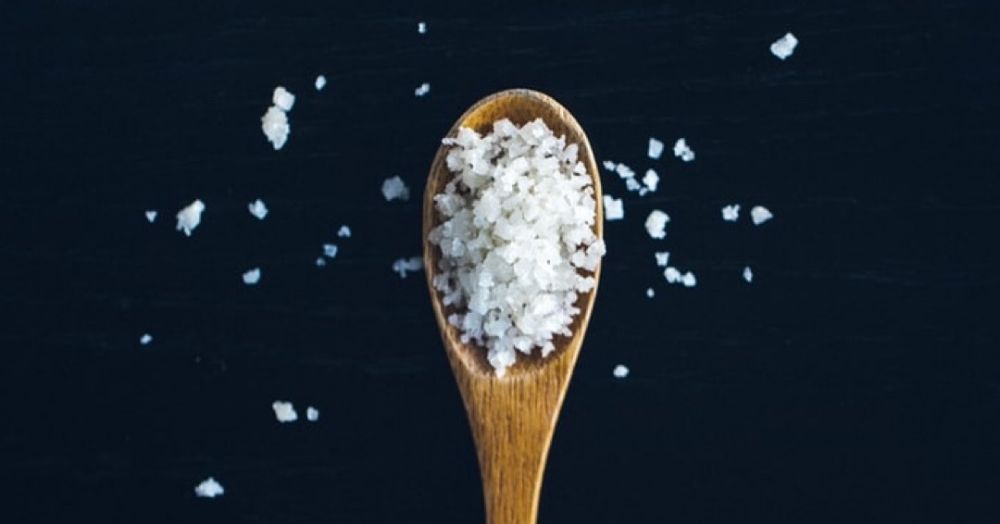
While salt doesn’t make ice last longer it does make ice colder. While this seems strange there are two chemical process that cause this to happen.
Adding salt to ice does make it colder. The chemical processes of the salt dissolving in water as well as the ice turning from a solid to a liquid all require heat to happen. They draw this heat from the surrounding ice, making the ice cooler overall.
This isn’t super intuitive as we often think that ice melts because it is getting warmer. And while this is generally true the actually breakdown of the fixed solid structure of molecules in ice into the more fluid structure of a liquid requires energy in the form of heat and makes the ice colder.
Because salt speeds up this melting process and there is a lot of ice melting all at once and a lot of salt dissolving into water all at once it can dramatically lower the temperature of the ice.
This is a great way to make an extremely cold ice bath and to cool down drinks extremely quickly.









